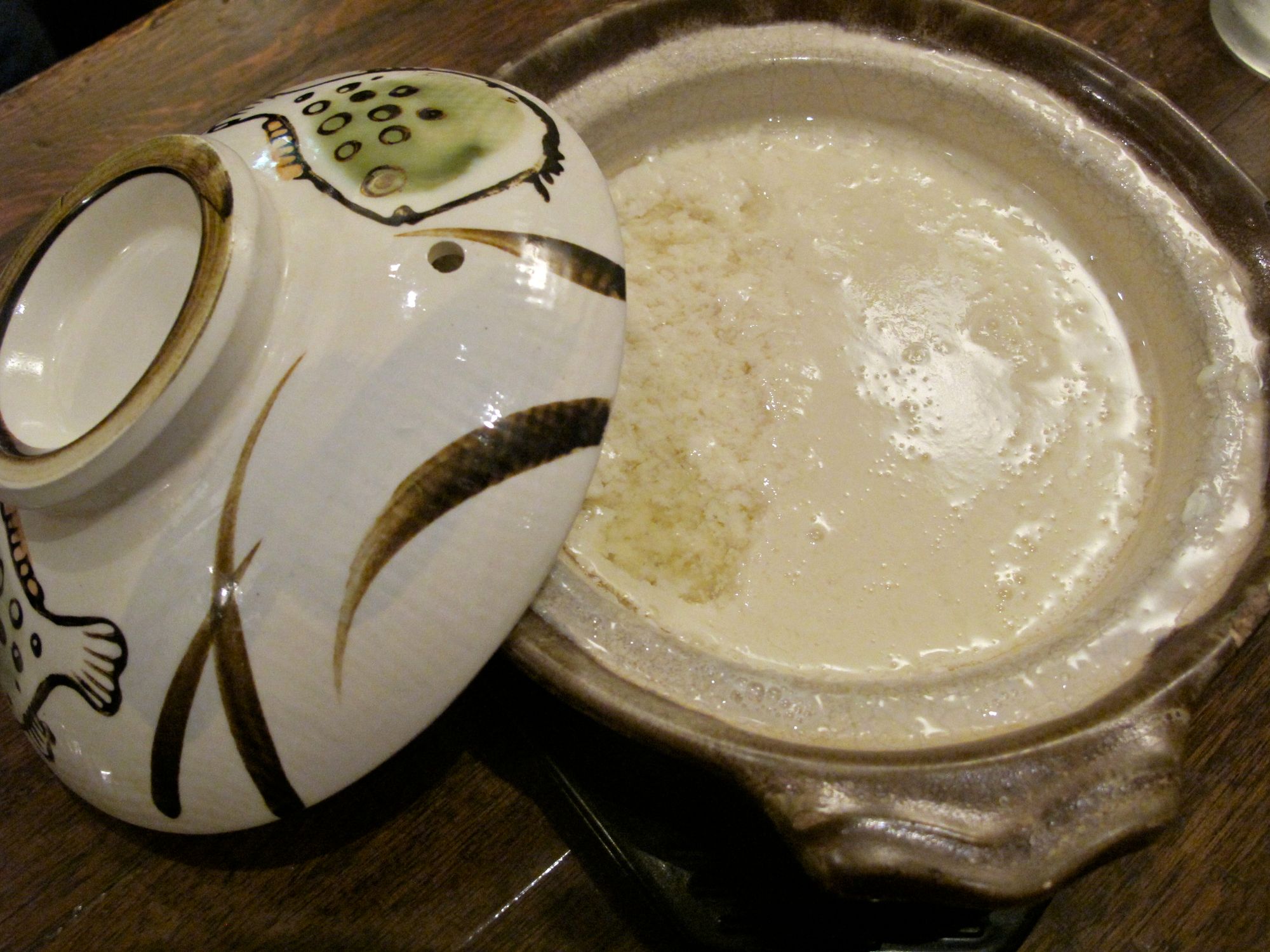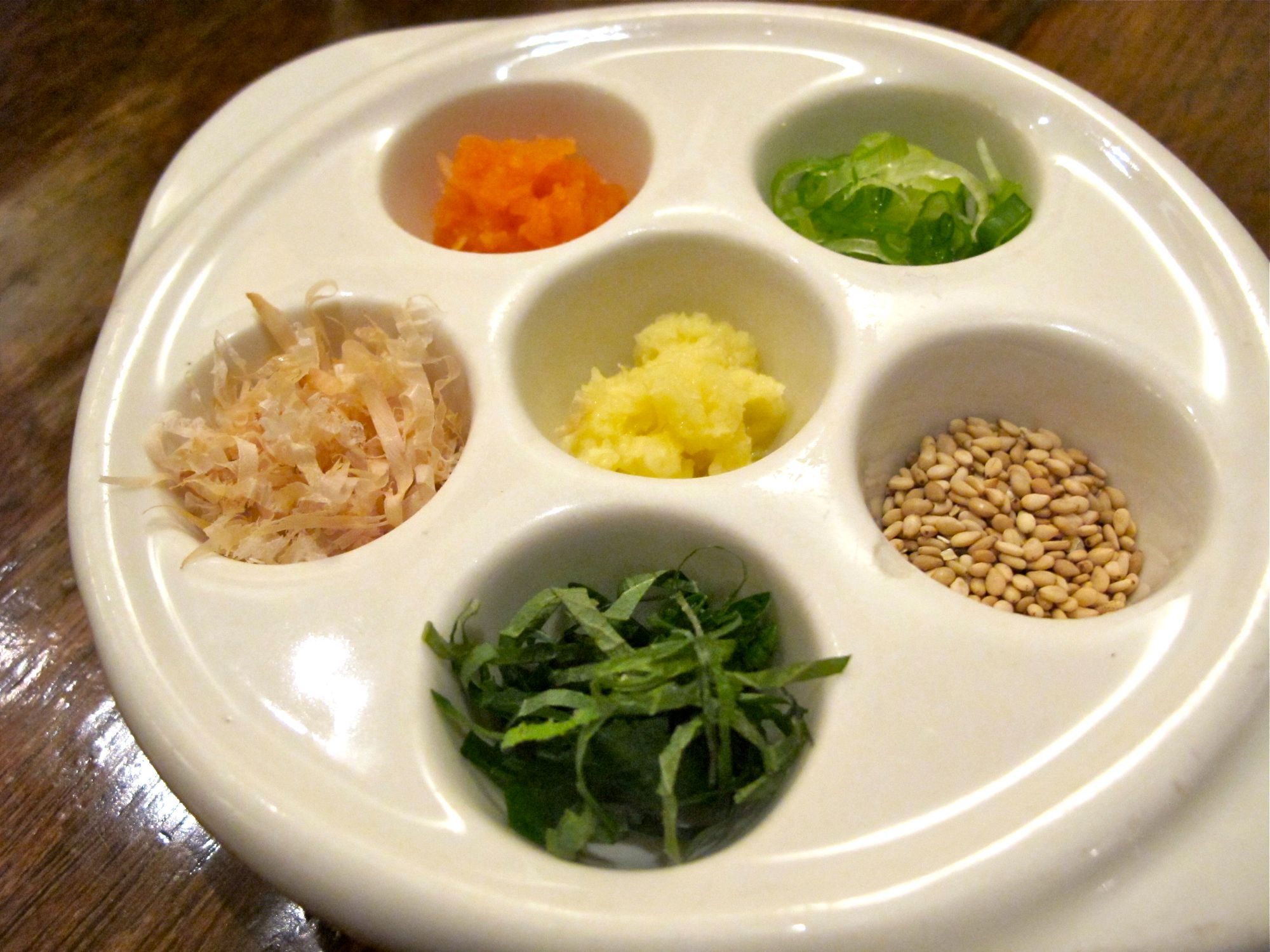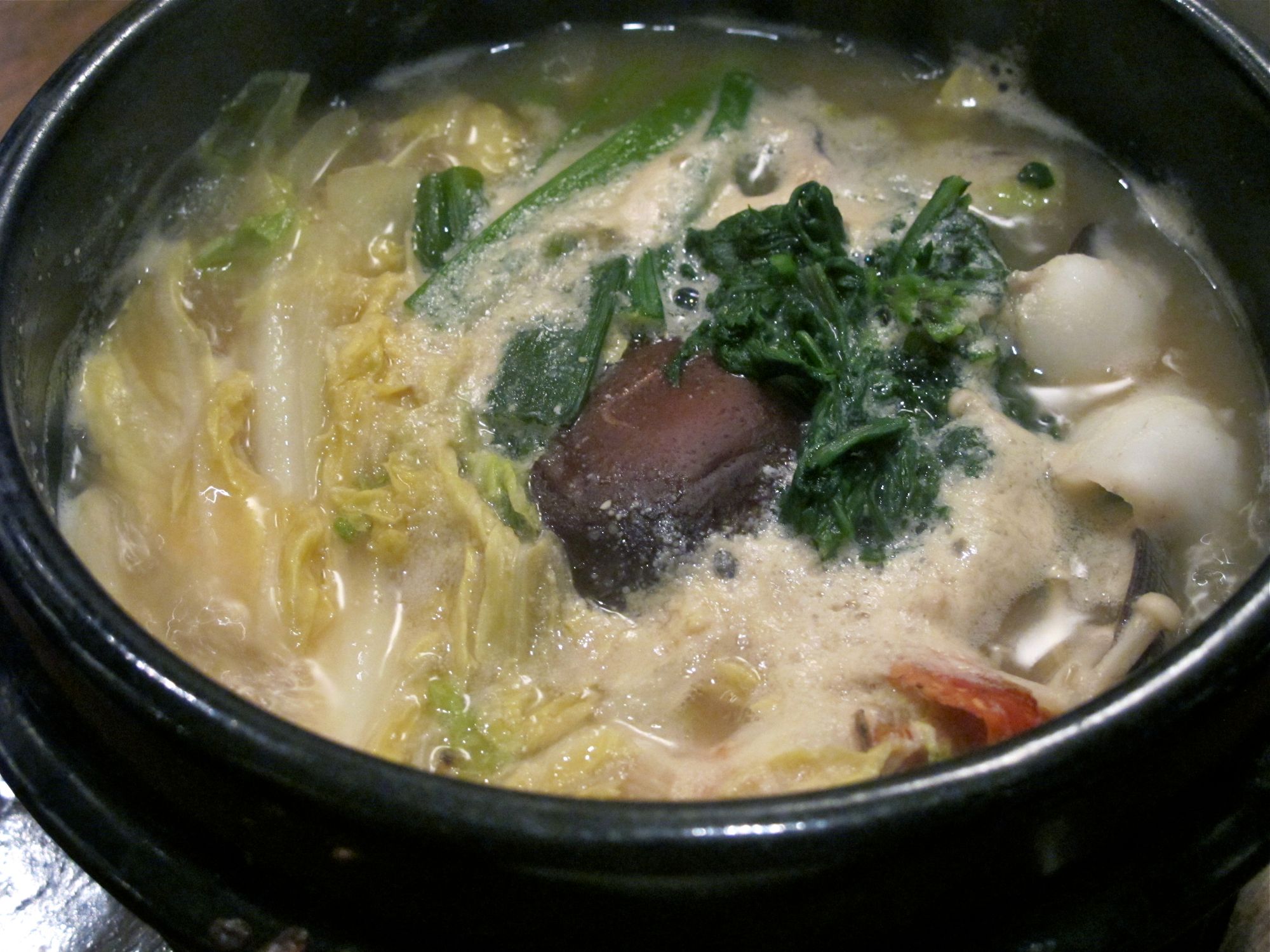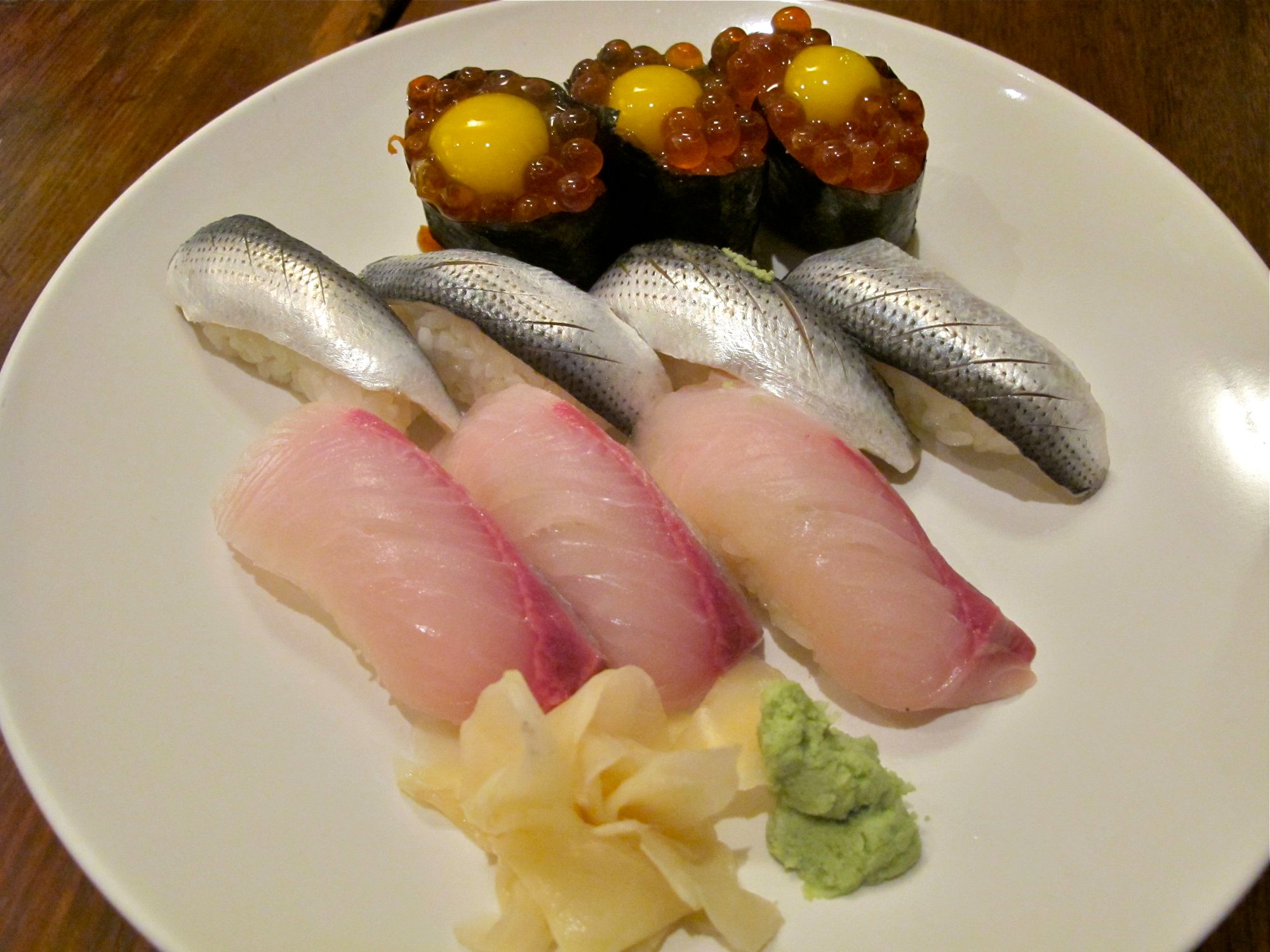Living in San Francisco, you never know what is going to set someone off. There’s definitely a fine line of sanity here, whether you get some crazy ranting next to you on the MUNI, or an aggro lady screaming at you in her Lexus in the Mollie Stone’s parking lot on California. And so if you suddenly get a craving for the strawberry mochi at EIJI and think you can order a whole pile of them for takeout, well, someone is gonna get a schooling—on the level of a very icy Japanese schoolmarm. Just envision some Seinfeld here: no mochi for you! Well, you can have mochi, but only one per person, no takeout, and you have to order other items on the menu—you can’t come in for just that dish. Got that?
Now, not to paint a portrait of this place as cell block A, because it’s actually very charming, and homey, and neighborhoody. The staff is quite kind. But yeah, there are some rules. Let’s review:
Reservations: make them. Do not be late. Do not try to add more people, or God forbid, come with less. One night I did a walk-in with friends, but we had to wait quite a while, and let’s just say you don’t want to be the last table out of there. All you will vibe is: “We want to close! Chop chop!”
Do not be annoyed when they drop the check on you and you haven’t even finished yet. It’s just their not-very-subtle way of letting you know people want the table after you, so get the lead out and dispense with the chitchat.
If you want miso soup with your order, just wait to order it at the end of your order—it stresses them out if you order it first, because then they have to remind you of the per-person minimum here (which is $15, don’t sweat it). Don’t get reminded. Just order up. (Oh, and pssst, the miso with Asari clams, $5, is the way to go.)
You already know about the mochi: only one per person, and no to go. No complaining if they run out, which they often do.
You did not just try to walk in here with six people. Really? You must be smoking tangerine zest. Keep it tiny (like this place): go for two. Four, tops. And you made a reservation, right? OK, good.
Oh, and admittedly, the sake and beer list is sadly a very lacking component to the experience here. There are only a few to choose from. Sure, there’s a $15 corkage, but don’t even try. It’s gonna start the evening off on a rotten note. (Although I have wondered if bringing Onoda-san a bottle of something in addition to your “personal” would alleviate the situation. Then again, it’s not worth knowing because really, you don’t want to set him off.)
All right, so now that you’re on pins and needles about this place (it’s like it’s the Castro cousin to Ino!), you’re probably like, what the hell am I eating? Shoe leather? Rocks? Pieces of glass while being forced to face the corner? No, my dear. You are going to start with ordering the specialty here, like the little cloth flag flapping outside proclaims: tofu.
I recommend the oboro tofu ($8.75), aka “cloudy tofu,” just like this city. They will make the tofu fresh at your table over a little burner, which is made with soy milk that chef Eiji Onoda brews himself. His wife will lift the lid on the ceramic bowl, and will ladle out the creamy and loose custard into bowls, which you are invited to choose your own adventure and garnish with the accoutrements that accompany the tofu (chopped shiso, scallions, ginger, sesame seeds, bonito, and aka oroshi, grated daikon that has been steeped in chile). The tofu is a subtle pleasure that can be lost on some people, but for me, it’s always a ritual when I dine here. (You can also go for the ankake, $4.50, a firmer tofu that is made daily.)
The specials board (which really only has subtle changes) is full of gold: look for the sunomono dishes (I always get the bitter melon and mackerel, $8.50, when it’s on there—which comes sprinkled with sesame seeds and delicious shavings of bonito—but is subject to bitter melon availability). Sometimes you can score some kama (collar), and another hot dish that has its own fan club is the seared tuna belly steak ($8.25).
There’s a reason the place has steamy windows on chilly nights (and it’s not just because it’s often date night in here): the piping-hot bowls of yosenabe and misonabe on the tables. On my recent visit, three of us shared the misonabe ($18.50), packed full of clams, shrimp, mussels, enoki mushrooms, shiitakes, cabbage, and a few other treats (it comes with rice and salad). It’s hearty, fulfilling, the seafood is fresh and cooked oh-so-right, and don’t let chef see this, but our table loved putting our rice in our individual bowls with a little bit of the remaining broth—quite amazing. Great dish for chilly SF nights. Oh, and you can order it to-go for lunch, but here’s one more rule: bring your own bowl or Tupperware, or they will charge you extra for the container. (I actually like that rule a lot.)
The sushi menu appeals to two camps: traditionalists, and caterpillar roll eaters. As a member of the former, I usually just look and see what’s on the board that evening for nigiri, like kohada ($7) or aji ($5.25). The kitchen was also really accommodating and made three instead of four pieces for us on the night we dined in three (I know, we were pushing it with that request). The nigiri here is well-cut, with such fresh fish, a frisky swipe of wasabi, and well-formed rice. Now, is the fish all sustainable? Sadly, no, so it’s up to you to whip out your Seafood Watch card and take a look before you order.
Dessert: yeah, you know, mochi. The strawberry ichigo daifuku ($3.50) is the specialty, with fresh strawberry wrapped in mochi with red bean paste inside. The night we were there, they were out (you gotta get there early), so we had the mochi ice cream Kyoto-style ($5), which was green tea and vanilla ice cream wrapped up in cinnamon mochi, and then drizzled with red bean sauce. Yeah, it’s saucy, and I liked the interplay of the textures and temperatures of this dish.
This little neighborhood spot has been here for almost five years, and has plenty of fans. It has many charms—you just need to tread lightly. Otherwise, no mochi for you! Bitter melon and mackerel sunomono.








